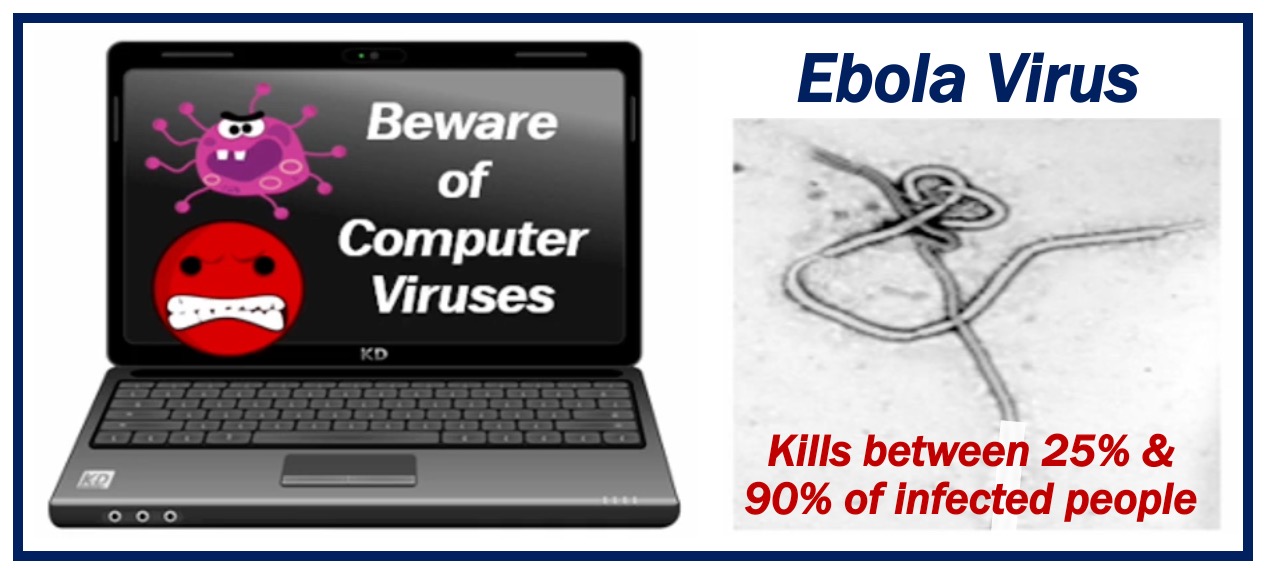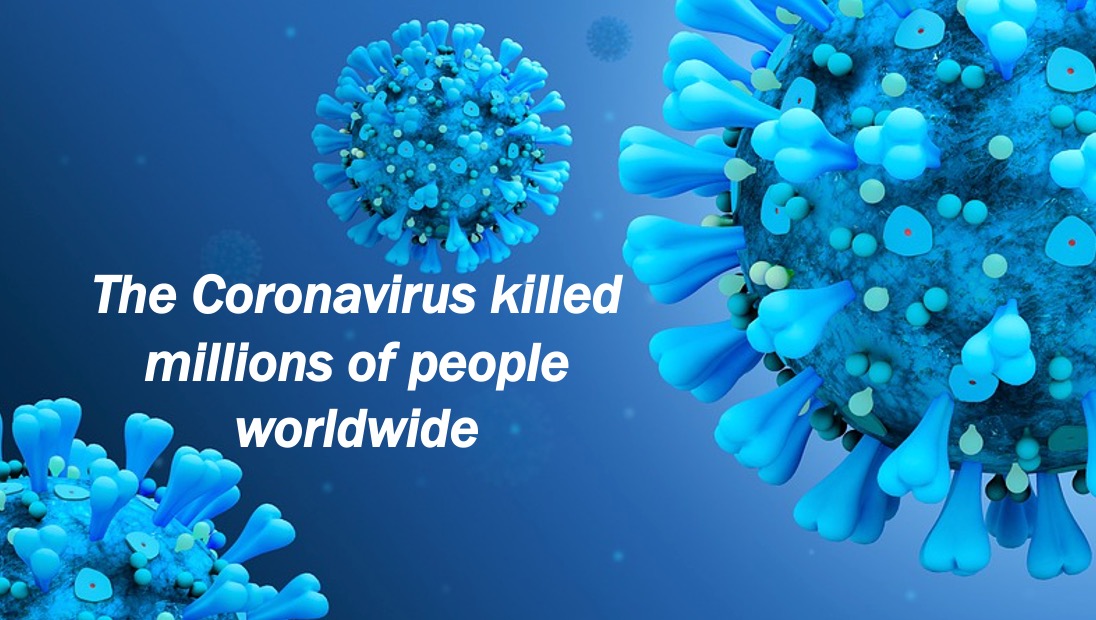The term VIRUS has two meanings. It may refer to a computer program that infects computer systems, or an infectious agent that replicates inside the living cells of organisms.

They Can Both Cause Illness
Viruses can cause illness either in living things, such as humans or in computer systems, i.e., they can make us or computers ‘sick.’
In 2020, a pandemic – COVID-19 – began which was caused by a virus known as the coronavirus. It spread all over the world and killed millions of people.
A disease caused by a virus is a viral disease, as opposed to a bacterial or fungal disease.
Self-Replication
Biological and computer viruses cannot reproduce on their own. Biological viruses need a host cell while computer viruses require documents or files.
Computer Virus – Malware
A computer virus is a type of malware. Malware is any software program that has been deliberately created to harm computer systems or manipulate them.
Malware gains unauthorized access into computer systems causing damage or disruption.
The term MALWARE comes from the beginning of the word MALicious and the second half of softWARE. There are many different types of malware, including trojans, adware, ransomware, spyware, viruses, rootkits, keyloggers, and worms.

Biology – Virus
In the world of biology, viruses are tiny, microscopic particles that can make animals (including humans) and plants ill. Not all viruses make animals or plants ill – just some of them.
Many human diseases are caused by viruses. AIDS, chicken pox, mumps, measles, the common cold, flu, herpes, rubella, viral hepatitis, and COVID are viral diseases.
Vaccines and drugs
Vaccines, which are biological preparations providing acquired immunity, have been developed for many viral diseases and have played a crucial role in controlling outbreaks, such as the eradication of smallpox and the significant reduction of diseases like polio.
Furthermore, advancements in antiviral drugs have also significantly improved treatment options, helping to manage symptoms and reduce the severity of viral infections in cases where vaccines are not available or effective.
According to the National Human Genome Research Institute in the US:
“A virus is an infectious microbe consisting of a segment of nucleic acid (either DNA or RNA) surrounded by a protein coat. A virus cannot replicate alone; instead, it must infect cells and use components of the host cell to make copies of itself.”
“Often, a virus ends up killing the host cell in the process, causing damage to the host organism.”
Mode of transmission and prevention
Biological viruses
These can spread by person-to-person contact, in droplets when an infected person coughs or sneezes, in the air via tiny aerosolized particles, contact with contaminated surfaces, mosquito bites, blood transfusions, sexual intercourse, and shared needles.
Additionally, some viruses can pass from mother to child during pregnancy, childbirth, and breastfeeding.
Hygiene practices, social distancing, protective gear, safe sex, vaccination, and coughing/sneezing into a tissue or the inside of the elbow, can help prevent or reduce the risk of infection.
Computer viruses
Computer viruses can spread through email attachments, downloads, USB drives, networks, malicious websites, software exploits, file-sharing, and phishing scams.
Cybersecurity practices such as using antivirus software, firewalls, safe browsing habits, regular software updates, strong password protocols, two-factor authentication, routine data backups, network security measures, and staying informed about the latest cybersecurity threats can help protect your computer or smartphone.
Parts of speech
Noun
The term ‘virus’ is a noun. Other related nouns include ‘virology,’ which is the study of viruses and viral diseases, and ‘virologist,’ a scientist who specializes in virology.
Verb
There is no direct verb from the root word ‘virus.’ We must use related verbs such as ‘infect’ or ‘replicate.’ For example, we can say:
“When the virus infects the host…” or “As the virus replicates with the host cell…”
Adjective
The word ‘viral’ means pertaining to or caused by a virus. For example, we can say:
“Influenza, hepatitis, and chickenpox are viral infections.”
Adverb
There is no direct adverb for the term ‘virus.’ We need to use a phrase to describe an action related to a virus, as in:
“The disease was transmitted virally, spreading rapidly through the community.”
In this sentence, ‘virally’ is used as an adverbial phrase to describe how the disease, caused by a virus, was transmitted.
Video – What is a Virus?
This video presentation, from our YouTube partner channel – Marketing Business Network, explains what ‘Virus’ means using simple and easy-to-understand language and examples.
